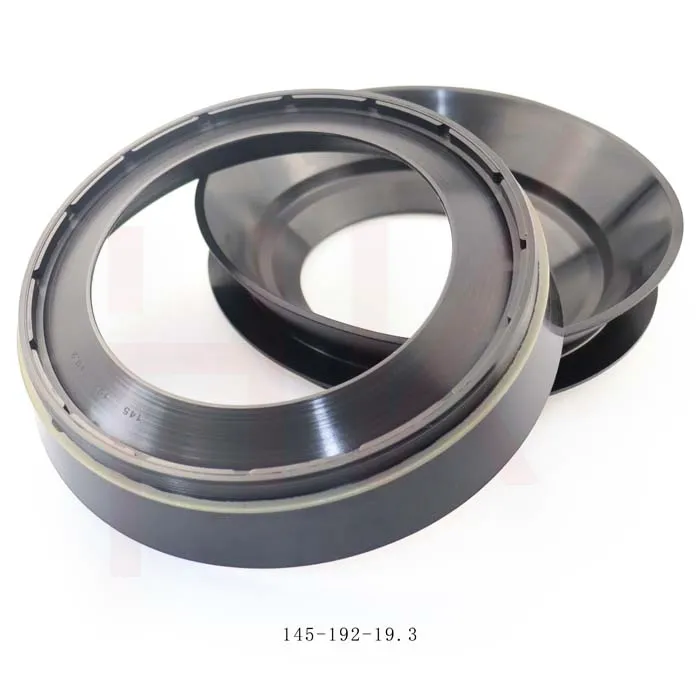dets. . 26, 2024 02:54 Back to list
High Temperature Resistant Oil Seals for Enhanced Performance and Durability
Understanding High Temperature Oil Seals Their Importance and Applications
High temperature oil seals play a crucial role in various industries where machinery operates under extreme conditions. These seals are integral components that prevent the leakage of lubricants and fluids while maintaining a barrier against contaminants. In this article, we will explore the significance, construction, materials used, and applications of high-temperature oil seals.
What Are High Temperature Oil Seals?
High temperature oil seals, also known as high-performance oil seals, are designed to operate effectively in environments where temperatures can exceed the normal limits of standard seals. They are engineered to withstand intense heat generated by machinery, chemicals, and friction, thus ensuring optimal performance and longevity.
Importance of High Temperature Oil Seals
The primary function of an oil seal is to retain lubricants within machinery while preventing external contaminants such as dirt, dust, and moisture from entering. In high-temperature scenarios, the right oil seal minimizes the risk of lubricant degradation, reduces wear and tear, and ultimately enhances the lifespan of mechanical components.
Failure to utilize appropriate high temperature oil seals can lead to catastrophic results, including equipment failure, increased maintenance costs, and production downtime. Therefore, choosing the right seal is critical for ensuring the efficiency and reliability of machinery in demanding applications.
Key Materials Used in High Temperature Oil Seals
The performance of high temperature oil seals largely depends on the materials used in their construction. Common materials include
1. Fluoroelastomers (FKM) Known for their excellent heat resistance and chemical stability, FKM seals can handle temperatures ranging from -20°C to 200°C (-4°F to 392°F) and are effective in hostile environments.
2. Polyurethane (PU) With outstanding abrasion resistance and flexibility, polyurethane is often used in seals that require both durability and heat resistance. Polyurethane seals typically operate effectively at temperatures up to 80°C (176°F).
high temperature oil seal

3. Metallic Materials In certain applications, metallic oil seals are utilized to provide additional strength and durability. These seals can withstand extreme temperatures and pressures, making them ideal for heavy-duty industrial applications.
4. PTFE (Polytetrafluoroethylene) Known for its low friction characteristics and high chemical resistance, PTFE is suitable for high-temperature applications while providing excellent sealing capabilities.
Applications of High Temperature Oil Seals
High temperature oil seals are utilized in various fields, including
- Automotive Industry They are essential in engines, transmissions, and differentials, where high temperatures are prevalent. Ensuring proper sealing in these areas helps maintain optimal lubricant levels and performance.
- Aerospace Components exposed to high heat in aircraft engines require reliable oil seals to prevent fluid leaks and ensure safety during operations.
- Manufacturing In machinery such as turbines and compressors, high temperature oil seals play a vital role in maintaining operational efficiency by preventing the loss of lubrication under high-stress conditions.
- Oil and Gas Industry With equipment often operating at elevated temperatures and pressures, high temperature oil seals are crucial for maintaining safety and reliability in exploration and extraction processes.
Conclusion
In conclusion, high temperature oil seals are indispensable components that help ensure the integrity and performance of machinery operating in extreme conditions. The right selection of material and design tailored to specific applications can significantly enhance equipment longevity and reduce maintenance costs. As industries continue to evolve and face more demanding operational challenges, the importance of high temperature oil seals in maintaining efficiency and safety cannot be overstated.
-
The Trans-formative Journey of Wheel Hub Oil Seals
NewsJun.06,2025
-
Graphene-Enhanced Oil Seals: Revolutionizing High-Pressure Oil Sealing
NewsJun.06,2025
-
Future of Hydraulic Sealing: Advanced Intelligent TCN Oil Seals
NewsJun.06,2025
-
Don’t Let a Broken TCV Oil Seal Ruin Your Day
NewsJun.06,2025
-
Bio-Inspired Dust Seals for Better Sealing Performance
NewsJun.06,2025
-
Biodegradable and Sustainable Hydraulic Seal Materials
NewsJun.06,2025
-
Top Oil Seal Solutions for Your Industrial Needs
NewsMay.22,2025
Products categories
















